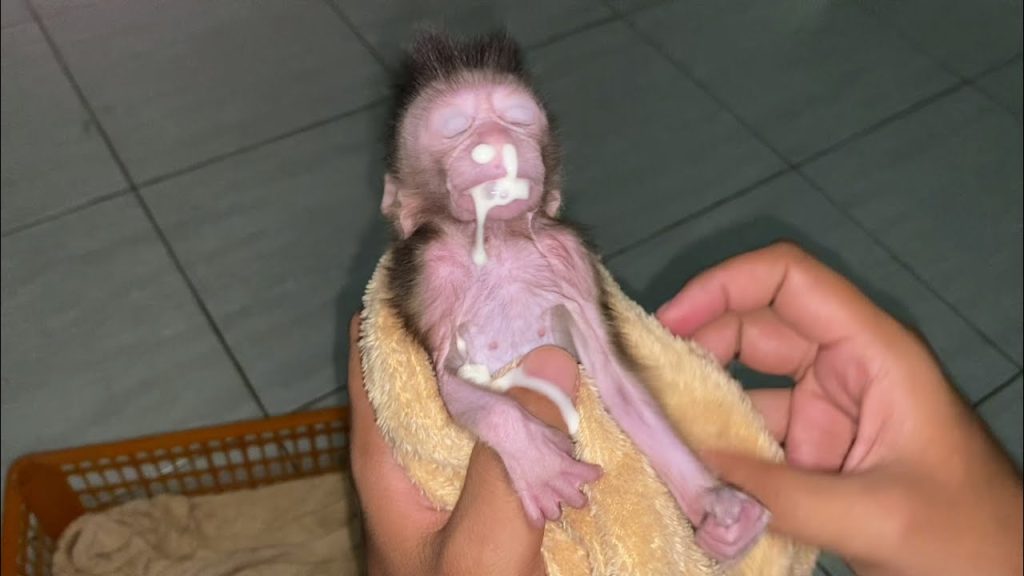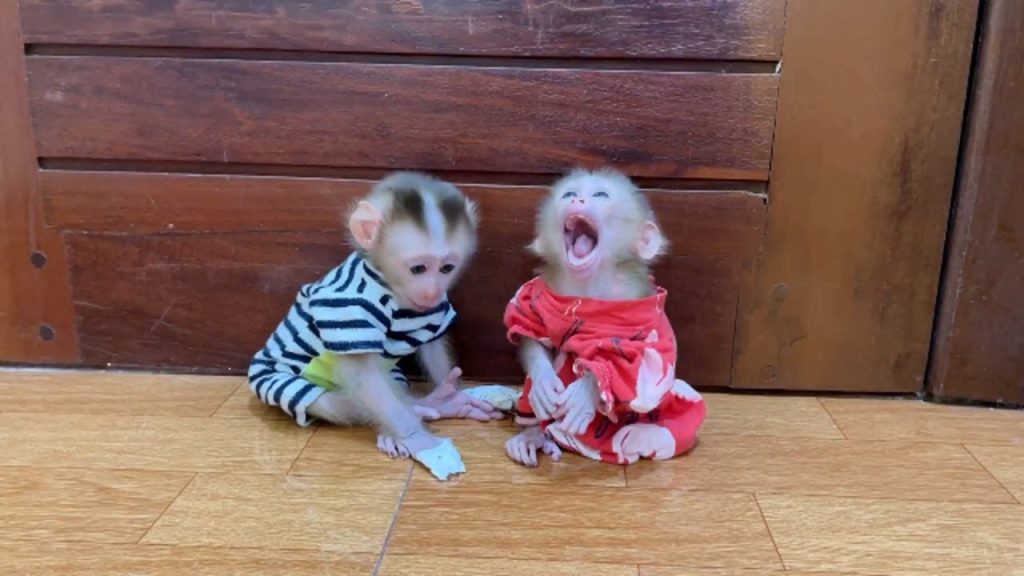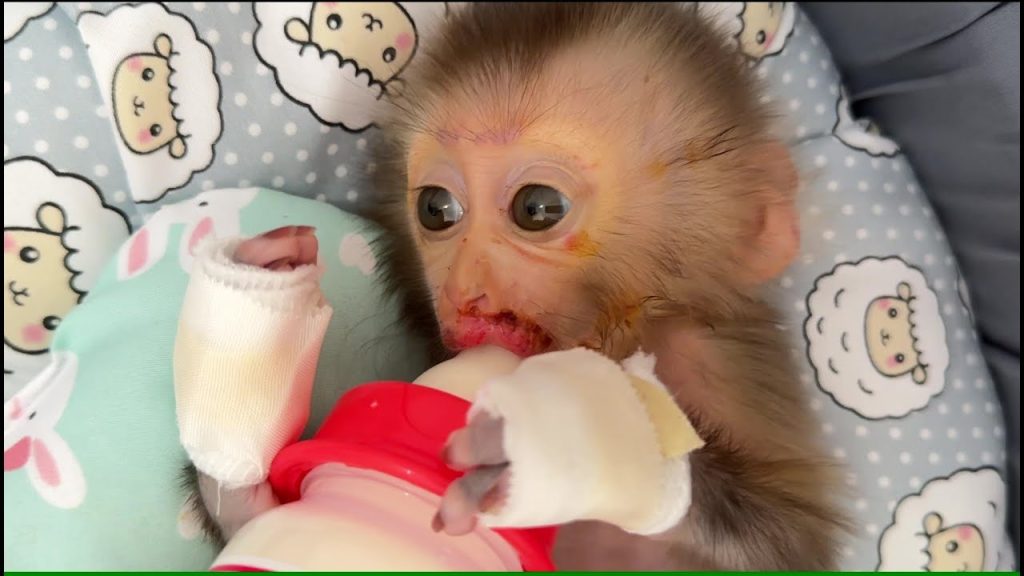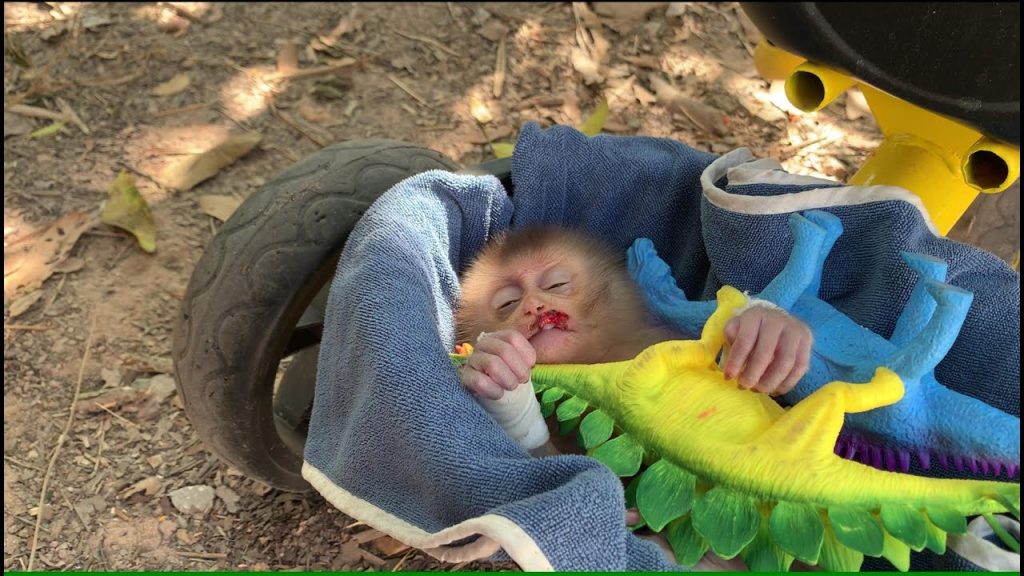
When a tiny baby monkey begins vomiting frequently, the situation is not simply a sign of discomfort; it is a crisis moment in the life of an animal whose entire survival depends on rapid stability. Baby primates are biologically designed to rely on the mother’s body for warmth, immune protection, correct milk nutrients, emotional regulation, and safe feeding rhythms. When that mother is absent — or when the infant is already weak — every small disturbance becomes amplified. Vomiting, in particular, becomes a sign that the stomach and nervous system are overwhelmed, and because baby monkeys have almost no reserve fluid or fat, the condition can intensify frighteningly fast. The forest, or even a temporary human holding environment, is not prepared to supply the instant support that the mother’s body normally provides. In this moment, the baby’s body is fighting two battles at once: the original cause of the vomiting and the secondary threat of dehydration and loss of electrolytes. Even the texture of the body changes — paws can feel colder, the tiny abdomen can tighten, the cry becomes thinner or weaker. Early life in the wild is ruthless, not because nature is cruel, but because survival margins are razor-thin. A human seeing this tiny monkey vomiting repeatedly may think the problem is small because the animal is small, but in reality the opposite is true: small size means large danger. The ethical responsibility of humans, when confronted with a fragile infant like this, is not to experiment with treatments or hope that time will magically repair the problem, but to act as a connector. A connector between helplessness and proper care. A connector between injury and skilled eyes. Survival in wildlife care is often not achieved by dramatic heroism — it is achieved through correct, timely transfer to professional support. A weak baby monkey vomiting is not a moment for hesitation; it is a reminder that compassion is most meaningful when it is paired with accurate action. The goal is not to tame the animal, nor to domesticate it, nor to hold it for entertainment. The goal is simply to preserve life so that one day, strength can return, and the forest will again be a place this monkey belongs to — not a place that nearly ended its story too soon.


